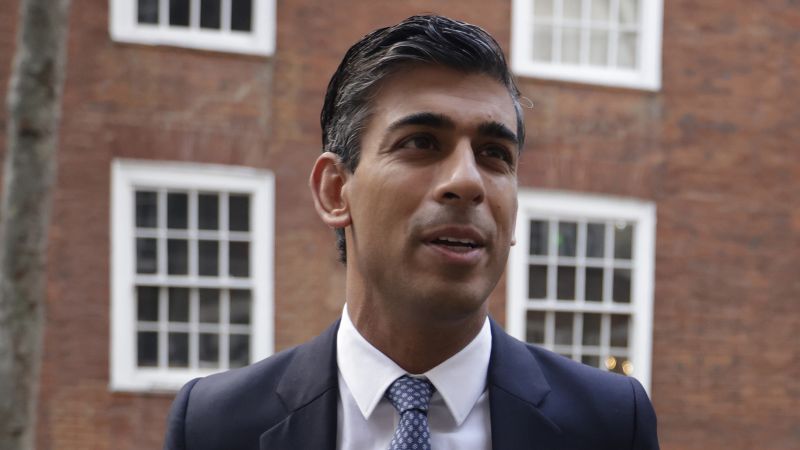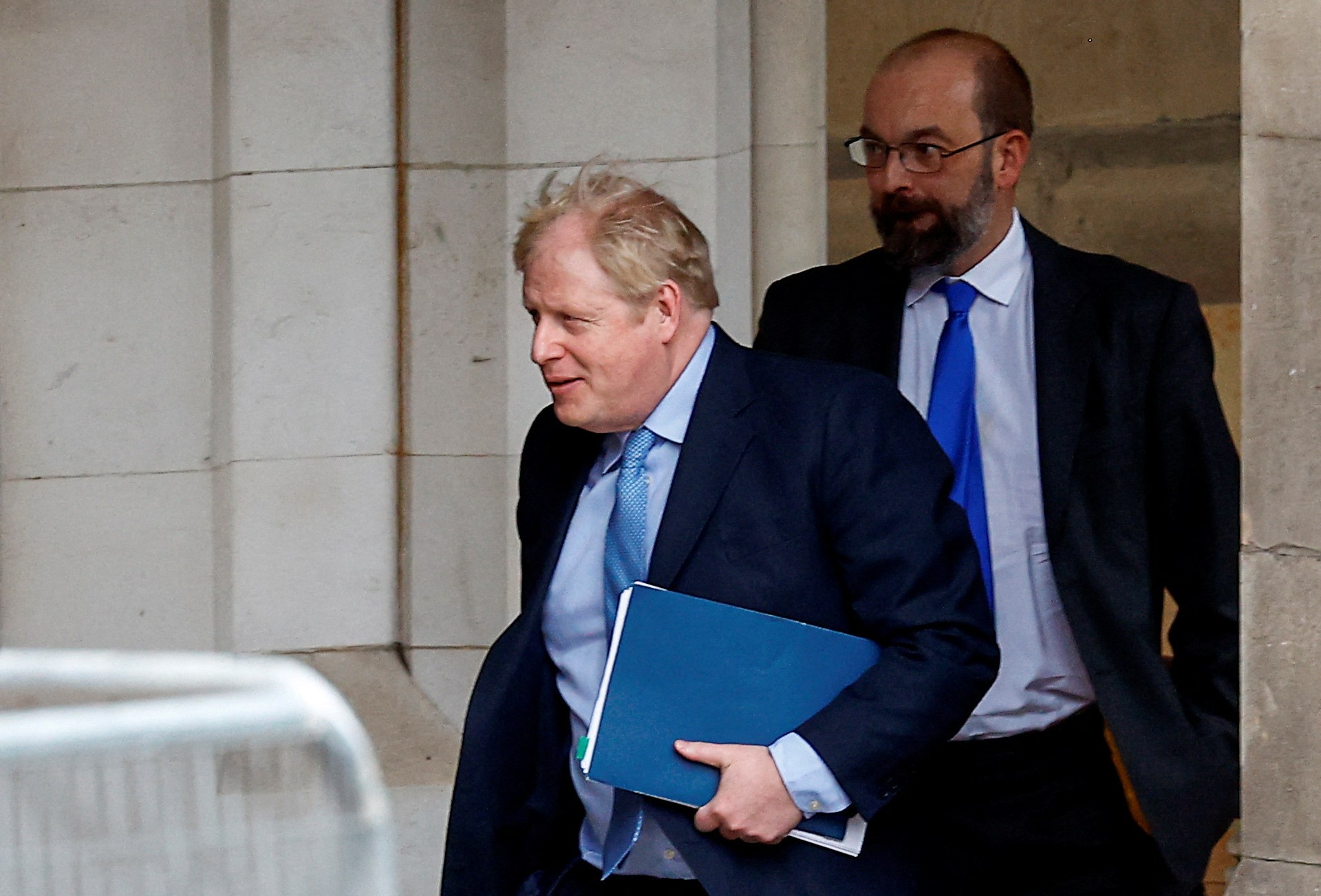Pound seesaws as Rishi Sunak prepares to confront UK’s huge economic challenges | CNN Business
London
CNN Business
—
Rishi Sunak, Britain’s third prime minister in seven weeks, will face the huge challenge of projecting stability after a period of historic political and financial market chaos. But his other task — shepherding the country through a recession — is poised to be just as daunting.
The former finance minister has won the race to replace Liz Truss, his erstwhile opponent who’s set to be the shortest-serving prime minister in British history. He’ll officially step into the role once appointed by King Charles III.
Sunak said Monday that it was his “utmost priority to bring our party and our country together” in the face of a “profound economic challenge.”
Investors cautiously welcomed news of his victory. The pound moved in and out of the red against the US dollar on Monday. It was last trading above $1.13, about 0.1% higher. Yields on benchmark 10-year UK bonds, which move opposite prices, fell to 3.76%. The FTSE 250 index of mid-size UK companies gained 1.1%.
Sunak campaigned for the job over the summer with promises to help households tackle the rising cost of living, which is causing many to pull back spending. He said he would cut taxes, but only once price pressures eased.
Yet the economic outlook has deteriorated sharply since then — not least because of the market turmoil unleashed by Truss’ now-abandoned plan to slash taxes as soon as possible and boost government borrowing.
A closely watched gauge of economic activity dropped to a 21-month low in October. S&P Global, which tracks the data, said it effectively confirms the United Kingdom is in a recession.
“The heightened political and economic uncertainty has caused business activity to fall at a rate not seen since the global financial crisis in 2009, if pandemic lockdown months are excluded,” said Chris Williamson, chief business economist at S&P Global Market Intelligence.
As Truss’ disastrous tax cut plan proved, any economic stimulus beyond immediate support for energy bills could prove to be a nonstarter for Sunak.
“A key focus for the next Prime Minister and their chosen Chancellor needs to be fiscal responsibility,” Carl Emmerson, deputy director of the Institute for Fiscal Studies, said in a statement. “We need a credible plan to ensure that government debt can be expected to fall over the medium-term.”
Although one top Bank of England official indicated last week that investors may be pricing in too many interest rate hikes, the central bank is expected to remain tough in the near-term in its campaign to get inflation under control.
The Bank of England forecast last month that the UK economy was already in recession. Evidence to support that view is growing. The country’s output shrank by 0.3% in August, following an expansion of just 0.1% in July.
A government report released Friday showed retail sales fell 1.4% in September, a worse-than-expected drop. And consumer confidence is near its worst level on record as inflation is back at a 40-year high.
Dean Turner, an economist at UBS Wealth Management, called the spending outlook “pretty grim, to say the least.” The main questions now, he said, are how long a contraction lasts and how deep it becomes.
The picture of the United Kingdom’s financial position also darkened with the release of data on Friday showing that Britain’s government borrowed a net £20 billion ($22 billion) in September, £5.2 billion ($5.7 billion) more than the country’s fiscal watchdog had expected.
“The weakness in retail sales and overshoot of the Office for Budget Responsibility’s March public borrowing forecast won’t make the next Prime Minister’s task any easier in navigating the economy through the cost of living crisis, cost of borrowing crisis and the cost of credibility crisis,” Ruth Gregory, senior UK economist at Capital Economics, said in a note to clients.

Investors and economists expect the revamped economic plan outlined by current finance minister Jeremy Hunt to remain intact.
Last week, Hunt — just days into the job himself — announced the rollback of almost all tax cuts in Truss’ original “growth plan,” which had been rejected by investors.
Citing a renewed commitment to controlling the country’s debts, Hunt also said the government will universally cap energy prices only until April. Support beyond then will cost taxpayers “significantly less than planned,” he added.
“Whoever becomes PM — and even if they decide to change the Chancellor — it seems to me that the fiscal path is pretty much set in stone, because the markets will not tolerate anything other than what’s on the table,” Turner said.
That could help keep financial markets in check, though firm assurances and more detail on budget plans would be welcome at a time when bond markets around the world are showing signs of strain, said James Athey, investment director at Abrdn, an asset manager.
“It just again keeps the pause button pressed on international investor engagement,” Athey said.
There’s also some ambiguity about the Bank of England’s next moves. Ben Broadbent, deputy director of monetary policy, warned last Thursday that investors may have gotten ahead of themselves in projecting rate hikes amid the recent chaos.
“Whether official interest rates have to rise by quite as much as currently priced in financial markets remains to be seen,” he said in a speech.
The central bank is still expected to be very tough at its November and December meetings. If the economy slows sharply next year, it could later pull back. That said, if the government withdraws some support for energy bills in April, that could reignite inflationary pressures — once again complicating the calculus.
“Let’s be honest, we have no idea what the energy price will be in April, so we have no idea what the effect will be on household budgets,” Turner said.
That leaves investors guessing for longer, and economists waiting to revise their forecasts.
“Clarity and certainty, unfortunately, are all too absent,” Athey said.
— Sugam Pokharel contributed to this article.




